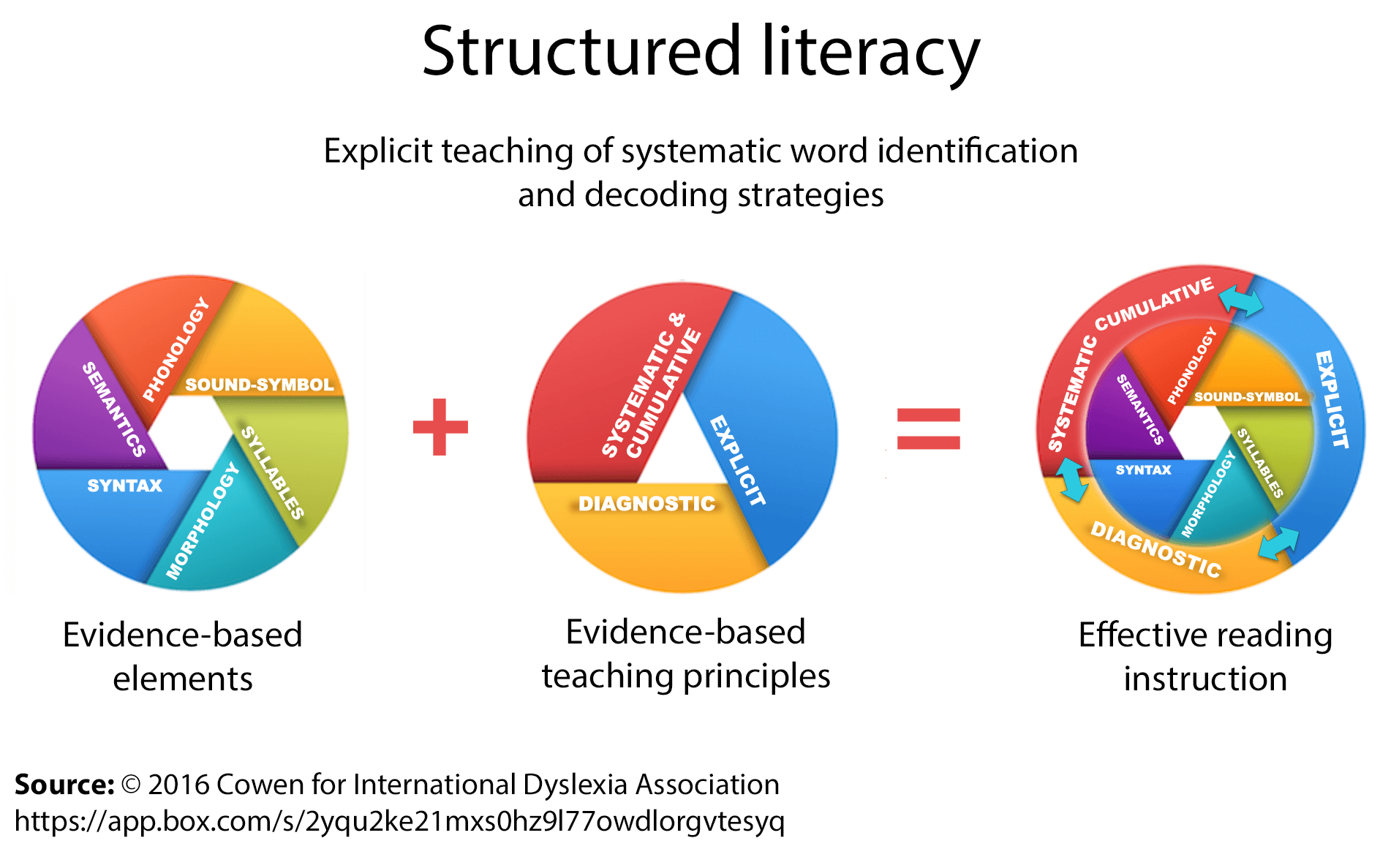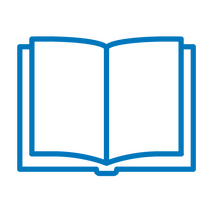Firstly, it is important to understand what literacy is. Literacy is, quite simply, the ability to read and write. Literacy is a foundational academic skill, and a crucial life skill.
Structured Literacy describes inclusive educational approaches to teaching young learners to read and write. Structured Literacy is particularly useful for neurodiverse learners who require clear teaching of the building blocks of reading and writing (often referred to as ‘decoding’ and ‘encoding’) to become literate. Structured Literacy approaches are based on educational research and scientific evidence, and are proven to work for all learners. SL takes a multimodal approach whereby listening, speaking, reading and writing are taught together.
According to the Ministry of Education website, Te Kete Ipurangi, “Structured Literacy™ instruction is the umbrella term used by the International Dyslexia Association (IDA) to describe evidence-based programmes and approaches that are effective for students with dyslexia.”
Owner Claire Howarth is accredited with a Certificate of Associate Membership with the Australian Dyslexia Association. This AMADA certificate is specifically accredited to those who meet all qualifications to serve as practitioners of Multisensory Structured Literacy teaching.

Multisensory Structured Literacy and Learning Differences - Dyslexia, Dyspraxia and Dysgraphia
Our Multisensory Structured Literacy (MSL) approach to teaching has clear scope and sequence to ensure that learners are introduced to concepts in a logical order and that the learning builds on itself over time.
MSL at Mindfull Tutoring is based on the science of reading. We have developed our own resources to support this teaching approach. Engaging decodable texts are used and students are encouraged to apply their learning during their writing time are the end of the session. Parents are highly encouraged to take an active role in their child's learning.
Our Multisensory Structured Literacy programme has a planned and systematic approach based on explicit instruction, providing hands-on multisensory teaching in order to orthographically map learning. Listening, speaking, reading and writing are often taught together to create multimodal lessons.
The core aim of the Multisensory Structured Literacy approach here at Mindfull Tutoring is to ensure your child can learn to read (decode) and write (encode). This is done in order to transition a child into reading to learn and writing to convey themselves clearly.
Once this has been achieved the foundational literacy skills have been laid, allowing the child to begin to independently create meaning and think critically.
Decoding and encoding words are skills required across all subject areas, and allow students access to the New Zealand Curriculum.
Would your child benefit from Structured Literacy tutoring?
All young readers benefit from a Structured Literacy approach to learning to read and write, however, it is especially relevant to those who may have diagnosed (or undiagnosed) learning difficulties, or are falling behind in their learning at school.
Structured Literacy interventions are ideally begun in the early years of primary school, though the approaches remain relevant throughout a child’s learning journey, and especially so for neurodiverse learners.
Your child may benefit from personalised tutoring based in Structured Literacy if:
- they dislike reading and writing because they believe they can not do it,
- they try their hardest, and are diligent students who are not making progress in their literacy development,
- they are already giving up on learning in the early years of schooling and are becoming disengaged,
- they are acting out in frustration or boredom in the classroom and around homework tasks,
- they are unsure of the sounds that letters make, even once this has been taught at home and/or school. Similarly, they are not able to ‘sound out’ or ‘chunk’ words to read and/or write,
- they commonly switch letters around in words, including transposing letters in their own and family members’ names, or other day-to-day words you may expect them to have learnt already,
- they seem to be falling behind their peers, or are acquiring reading and writing skills more slowly in comparison to their siblings despite the same or similar supports at home,
- you just feel like there’s something missing in their literacy development, but are unsure what this is,
- they are experiencing difficulties in orthographic mapping which are preventing them from learning.
Any of the above indicators may mean a learner is having difficulty with developing phonological awareness and understanding the alphabetic principle. These skills are signs that a student has an ability to decode (read) and encode (write) written language.



